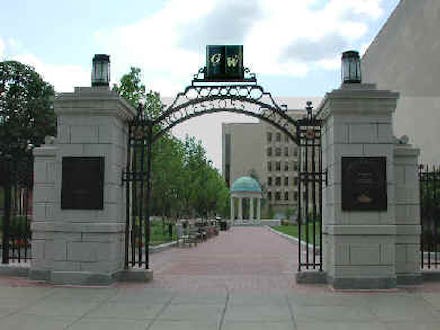George Washington University Makes Embarrassing Confession About Admissions Process

The admissions office at D.C.'s George Washington University (GWU) confessed over the weekend that their admissions process, previously defined as "need-blind," is really "need-aware."
On Friday, GWU's Associate Vice President for Financial Assistance Dan Small confirmed for the first time that GWU's admissions officials do consider a students' financial need when choosing who to admit. "By being need-aware," said Small, "GW is better able to stay within its aid budget allotment as well as provide better aid packages for those students with financial need."
For years GWU has marketed their school as need-blind, meaning qualified high school applicants are offered admission regardless of their demonstrated financial need. By being need-blind, expensive private universities are able to attract young talent who might otherwise not be able to pay full tuition.
According to the GW Hatchet, former Dean of Undergraduate Admissions Kathryn Napper said in a 2011 interview that GWU was "still looking for students who will fit in well here. We're still need-blind." As recently as last Saturday, the school's undergraduate admissions website stated that the application process was need-blind. (The statement "Requests for financial aid do not affect admissions decisions" has since been taken down.)
GWU is need-aware. Their admissions officers take the pool of students who meet the school's admissions standards, but are not among the top applicants, and hold their applications until the university has admitted a range of students at all income levels.
Richard Vedder of the Center for College Affordability and Productivity called GWU's admissions process "dishonest." He said, "It's misleading. Need-blind would mean, 'We don't pay a bit of attention to financial considerations in making admissions decisions,' and GWU clearly does."
GWU's confession comes at a time when private colleges and public universities across the country are facing a dual-mandate to improve their scores in ever-competitive college rankings, and to do more with less money. By being need-aware, schools like GWU can stretch their endowments and still bring in strong applicants, as long as they can keep the secret.